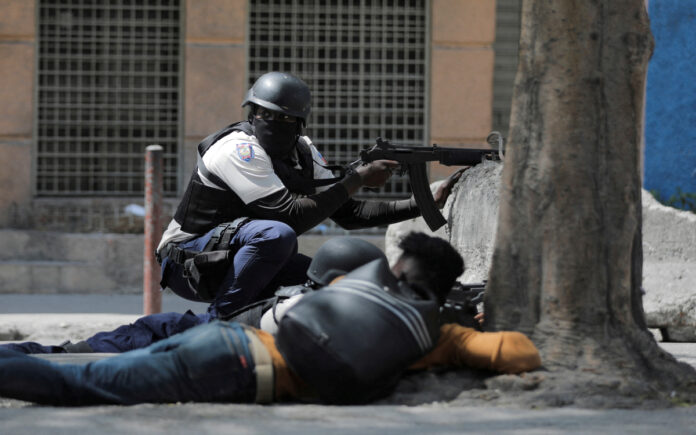Port-au-Prince/New York: With world leaders gathering at the United Nations this week to devise strategies for combating the gangs that are overwhelming Haiti, a pervasive sense of hopelessness permeates the hearts of many Haitians. They doubt that international intervention can effectively reverse the escalating violence that has gripped their nation.
Currently, a UN-backed force comprising 400 police from Kenya and around two dozen Jamaican officers has made little headway in curbing gang activity, which has plagued the nation since the assassination of President Jovenel Moïse in 2021. As discussions among global leaders continue, Kenya has recently pledged an additional 600 officers to bolster its presence.
The United States has proposed the idea of a U.N. peacekeeping force, but this concept is controversial, largely due to the historical introduction of cholera and sexual abuse cases associated with past U.N. deployments in Haiti.
To mitigate potential tensions, the decision was made to deploy Kenyan forces instead of launching another U.N. peacekeeping mission. During a visit to Haiti this weekend, President William Ruto of Kenya expressed openness to transitioning the mission into a larger U.N. peacekeeping operation. “On the suggestion to transit this into a fully U.N. Peacekeeping mission, we have absolutely no problem with it, if that is the direction the U.N. Security Council wants to take,” Ruto stated.
Despite Ruto’s positive remarks on the Kenyan forces’ achievements, a recent report from a U.N. human rights expert indicates that gang violence is escalating across Haiti, and that Haitian police lack the necessary “logistical and technical capacity” to effectively combat these gangs.
The persistent violence has left many Haitians, like 39-year-old Mario Canteve, feeling disillusioned about international efforts to restore order. Canteve, who sells cellphone chips and repairs electronics in Port-au-Prince—where gangs control an estimated 80% of the area—voiced his skepticism: “No one is coming to save Haiti. Nothing is changing. A new mission cannot save Haiti.”
In light of the escalating violence, some citizens have resorted to forming vigilante groups in an attempt to combat the gangs independently, highlighting the widespread belief that an international solution may not be forthcoming.
Moise Jean-Pierre, a 50-year-old school teacher, recalled previous U.N. missions in Haiti, deeming them ineffective: “It would not be the first time we’ve had U.N. missions in Haiti. What difference will it make?”
Also Read | Iran’s Revolutionary Guards Impose Communication Ban After Hezbollah Explosions
These sentiments reflect the difficult position world leaders face as they struggle to find a sustainable solution to Haiti’s ongoing crises. The current security mission aims to assemble a total of 2,500 personnel, with contributions from countries like the Bahamas, Bangladesh, Barbados, Benin, and Chad. However, the timeline for these deployments remains uncertain.
At the U.N., there is little appetite for a larger peacekeeping mission, primarily due to past abuses and a general aversion among Haitians toward foreign interventions. Experts note that three previous interventions by the U.S. and the U.N. have failed to ameliorate conditions in Haiti.
Also Read | Israel Launches Major Airstrikes Against Hezbollah in Lebanon
Some remain hopeful that elections slated for next year might lead to a homegrown solution. Haiti has not conducted general elections since 2016, as the crisis has persisted. Recently, the country took initial steps to establish a provisional election council to prepare for the elections, although significant hurdles remain, chief among them being the rampant violence.
Canteve emphasized the need for unity among Haitians, stating, “A new mission cannot save Haiti; the children of Haiti need to save themselves.” He also raised concerns about the feasibility of holding elections in such a volatile environment: “How can you hold an election when everything is so violent? Everyone is shooting. When police cannot even go into certain areas, what kind of election are going to get?”



